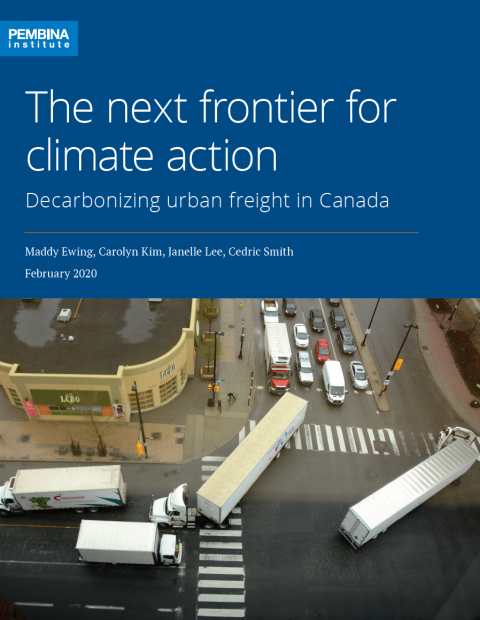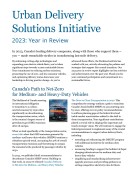In light of growing populations and a rapidly growing e-commerce sector, Canadian cities are developing strategies to electrify cars and trucks, implementing new tactics to manage growing curbside demand from commercial delivery vehicles, partnering with businesses to test new delivery technologies and practices, and investigating best practices from around the world to manage goods movement. This report highlights trends and actions in Vancouver, Calgary, Edmonton, the Greater Toronto and Hamilton Area, Ottawa, Montreal, and Halifax.
However, the current ad hoc city-by-city approach to solving the urban freight problem means that municipal bureaucrats and politicians are reinventing the wheel, so to speak, all across Canada. By coming together and sharing learnings, cities can move forward faster on solving this growing problem in concert with business and other levels of government, saving much sought-after municipal resources at the same time.
Businesses stand to gain substantially from a national approach, particularly those that have multi-province and/or national operations. Businesses need solutions that can be scaled up economically across the country. Like any other clean economy policy, the business community needs clarity and consistency to achieve efficiencies and economies of scale.
Consistent, coherent and co-ordinated policy approaches make sense for all parties involved, and will benefit the majority of Canadians who live in these urban centres.
To that end, Pembina Institute recommends:
- A national dialogue on urban freight to improve the environment and livability of cities across Canada
- Modernized goods distribution in urban centres, developed by combination of policy makers, industry, private sector and the public
- Goods movement strategies that are integrated with existing climate, land use, road safety and transportation strategies with which they are inherently interconnected
- Nationally consistent municipal-level freight data collection programs that inform effective goods movement strategies that can be scaled up across Canada.
Update (July 2020)
Please note the following minor updates were made to the report after initial publication on Feb. 27, 2020:
- Page 7: Corrected the Vancouver GHG data date from 2017 to 2015, and listed total GHG emissions as 14.7 Mt CO2e.






